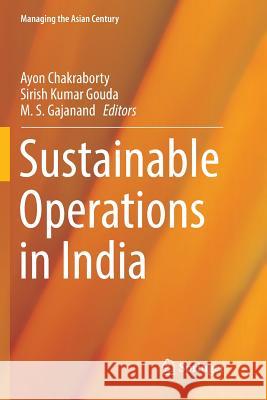Sustainable Operations in India » książka
topmenu
Sustainable Operations in India
ISBN-13: 9789811340406 / Angielski / Miękka / 2018 / 196 str.
Kategorie:
Kategorie BISAC:
Wydawca:
Springer
Seria wydawnicza:
Język:
Angielski
ISBN-13:
9789811340406
Rok wydania:
2018
Wydanie:
Softcover Repri
Ilość stron:
196
Waga:
0.30 kg
Wymiary:
23.39 x 15.6 x 1.12
Oprawa:
Miękka
Wolumenów:
01
Dodatkowe informacje:
Wydanie ilustrowane











